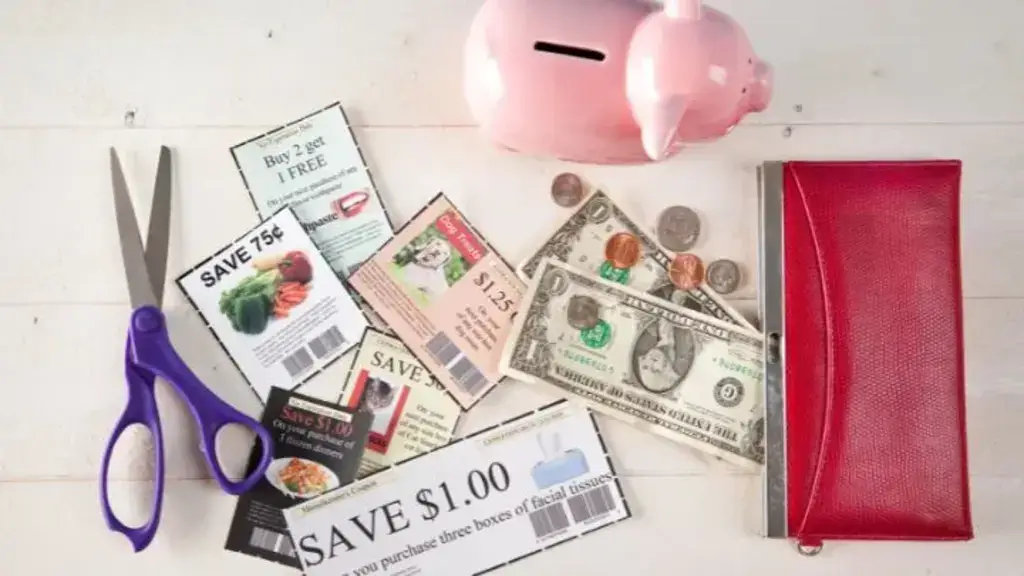Have you ever stood in the supermarket, staring at a $5 avocado, and wondered how life got so expensive?
Welcome to the club.
It seems like every day, we’re paying more for less. What if there was a strategy to invert the current situation?
Frugal living tips, anyone?
I’ve been down this road before, wrestling with budgets tighter than my old college jeans. I know it’s tough when your wallet is squeezed drier than a desert cactus.
Yet, here lies the intriguing part…
What is Frugal Living?
Living frugally doesn’t mean you’re cheap. Rather, it’s about making mindful choices on where to spend your money. The idea behind a frugal lifestyle is prioritizing what truly matters to you and allocating resources accordingly.
A big part of this mindset involves recognizing that more isn’t always better. A larger house means more space but also higher maintenance costs and cleaning time; eating out can be convenient, but cooking at home often saves money while promoting healthier habits.
The question arises: does frugal mean cheap? Absolutely not. Cheap implies cutting corners without considering quality or long-term consequences – like buying an inexpensive shirt that wears out quickly instead of investing in a durable one.
In contrast, those who live frugally make decisions based on value rather than just price tags. They’re resourceful people who understand the importance of saving for future goals over short-term gratification.
Frugality becomes a path toward financial freedom – allowing us to enjoy life’s pleasures without constant worry about expenses or debt accumulating from unnecessary spending.
Is Frugal Living Worth It?
You might ask yourself if starting to live frugally will have tangible benefits. Well, consider this: being intentional with your spending can lead to significant savings over time, which could help fund things like vacations or early retirement.
So, how do we start living frugally? One simple step is regularly evaluating our needs versus wants before purchasing.
Let’s remember that every penny saved today gives us more flexibility tomorrow — whether it’s an emergency fund for unexpected situations or pursuing personal dreams.
Being aware of our finances lets us take control and ensure our money works for us, not the other way around. Now, that’s what I call living smart.
Frugal Tips for Saving Money on Groceries
Lowering grocery costs isn’t only about making wise purchases but also preventing edible items from being discarded. Believe it or not, the average family of four throws away 122 pounds of food each month. That’s a lot of cash going straight into the trash.

Go Meatless a Few Days Per Week
Did you know that meat typically costs more per pound than most fruits and veggies? You can make substantial savings on grocery expenses by omitting meat from your meals a couple of days every week. Plus, exploring new meal ideas can be an exciting culinary adventure.
To help with this transition, check out these delicious Make-Ahead Meals. They’re easy to prepare and super tasty.
Buy in Bulk
Purchasing items in bulk may seem pricey upfront, but trust me, it leads to significant savings over time. Rice, beans, and pasta are perfect for buying large quantities as they have long shelf life. Just make sure you don’t throw away any unused portions.
If leftovers have got you stumped – no worries. There are countless creative ways to use them. Get some inspiration from here: Leftover Ideas.
Remember: Being frugal isn’t about depriving yourself; it’s making smarter choices so that every dollar works harder for you.
How to Avoid Credit Card Debt
Credit card debt can sneak up on you, but it doesn’t have to. It’s like a crafty fox that shows up when least expected, but you can outfox the fox by setting smart financial goals and keeping a keen eye on your spending habits.
The first step is being aware of your expenses. Consider making use of this bill checklist. It will help keep track of where every penny goes and assist in budgeting for necessities before luxuries.
Paying More than Minimum Payments
Did you know that only paying the minimum amount due each month can lead to an endless cycle of credit card debt? Picture yourself trying to fill a bucket with holes; no matter how much water (money) you pour in, it’ll never be full if there are leaks (debts).
To break free from this trap, try paying more than just the minimum payments whenever possible. You might need some sacrifices here and there – think homemade coffee instead of Starbucks – but trust me, the future will thank the present big time.
Avoid Late Fees Like The Plague
Sometimes, we forget or ignore our credit card bills until they hit us with late fees as high as $39 per slip-up. That’s nearly enough for ten gallons of gas or three meals at Chipotle—quite pricey for something avoidable. To dodge these hefty fines, set reminders, pay early if possible, or automate bill payments so deadlines don’t slip past unnoticed.
Create an Emergency Fund
An emergency fund is like having Batman’s utility belt—it saves us during unexpected situations without needing to rely heavily on credit cards. Aim for about six months’ worth of living expenses; remember, even a small start is still a start.
Planning in advance, monitoring your finances closely, and making wise decisions are all key to steering clear of credit card debt. Remember: you’re in control.
Frugal Tips for Household Expenses
Unlock financial freedom with practical, frugal living tips. Learn to save, avoid debt, and live prosperously within your budget. Click for secrets.
Use Energy-Efficient Appliances
Replacing inefficient appliances with energy-efficient models can substantially reduce electricity costs. Investing upfront may be a requirement, but the long-term monetary benefits are worth it. Did you know that for every 10F you turn down your water heater, you will save 3-5% on energy costs? That’s a substantial reduction.
A further energy-saving measure is to switch out incandescent bulbs for LED ones, as the latter cost only $3 to run over a two-year period of 5 hours daily, compared with an average of $32 for the former. Running a single incandescent bulb for 5 hours a day for two years costs an average of $32 while running a single LED bulb for the same duration costs only $3.
Make Homemade Cleaners
Making your own cleaners can help you save money and reduce chemical use in your home. Instead of buying expensive laundry detergent and paper towels, become a DIY superstar and create cleaning solutions using simple ingredients around your house. It’s a win-win situation for your wallet and the environment.
Unlock financial freedom with practical, frugal living tips. Learn to save, avoid debt, and live prosperously within your budget.

Frugal Tips for Thrift Shopping
Thrift shopping can be a treasure trove of unique finds and incredible savings. But it’s not just about luck; knowing how to navigate thrift stores and garage sales is key.
You need an eagle eye for spotting hidden treasures amongst the clutter. Look beyond what you see at first glance; items might be slightly worn or out of fashion, but they can become your next favorite piece with a bit of creativity.
A crucial tip is to know when local thrift shops restock their shelves. The early bird gets the worm in this case. You’ll have first pick on new arrivals that could potentially hold some amazing pieces.
Here are more tips on successful thrifting.
Bargaining at Garage Sales
Determining a budget ahead of time is key when attempting to get the best deals at garage sales, as prices are often negotiable and can lead to bidding wars that exceed what was originally intended.
Prior to going, decide on a budget for each item so you don’t become involved in costly bidding wars.
Navigating Online Thrift Stores
In today’s digital world, online platforms also offer fantastic opportunities for bargain hunting. While missing out on physical inspection may seem daunting initially, these platforms often provide detailed descriptions and pictures from multiple angles, ensuring transparency regarding product quality.
Don’t forget, though: patience pays off. Whether rummaging through stacks at your local store or scrolling pages online – happy hunting.
Frugal Tips for DIY Projects
DIY projects can be a fun and rewarding way to save money. But did you know that they can also help reduce waste? For example, why not make your own cloth napkins?
This simple switch not only saves cash but helps the environment, too. Now, let’s talk about food.

Bake Bread at Home
You might think baking bread is difficult or time-consuming. In reality, it’s simpler than most people realize, and many cost-effective recipes are available. Plus, nothing beats the smell of fresh bread wafting through your home.
Here, we have gathered some easy-to-follow tips on how to start baking bread at home.
Reuse Glass Jars
We all purchase products in glass jars – jams, pickles, sauces… The list goes on. Instead of tossing these out once empty (or even recycling them), why not reuse them?
Glass jars make great storage containers for dry goods like pasta or rice and help keep your pantry organized while reducing plastic use.
Find more uses for glass jars here.
FAQs in Relation to Frugal Living Tips
How do you live frugally on a low income?
To thrive on a tight budget, prioritize essential expenses and trim non-essentials. Opt for home-cooked meals over dining out and buy used instead of new whenever possible.
How can I be frugal instead of cheap?
Avoid being cheap by focusing on value, not just cost. It’s about making smart spending choices that maximize your dollars without sacrificing quality or ethics.
How can I save money effortlessly?
You can automate savings through your bank to easily stash cash each month. Additionally, adopting energy-efficient habits at home also trims down bills significantly.
Does living frugally pay off?
Absolutely. Frugal living lets you build up an emergency fund, lessen financial stress, and allow more freedom to spend where it truly matters – like experiences or investments.
Frugal Living is Easier Than You Think
It means being smart with your money.
You’ve learned that frugal living tips are all about prioritizing what matters most to you and cutting down on unnecessary spending.
We dove into grocery shopping strategies, how to avoid credit card debt, thrifty shopping habits, household savings methods like energy efficiency and DIY projects, budget-friendly entertainment options, and personal finance management from a frugal perspective.
Begin your financial freedom journey today with small steps that will eventually lead to big results. A penny saved today could be the dollar that makes tomorrow easier.
Your journey towards financial freedom begins now!
If you want to elevate your savvy with inspiring, informative and empowering content right in your inbox, subscribe to the SavvySpark weekly newsletter today!



